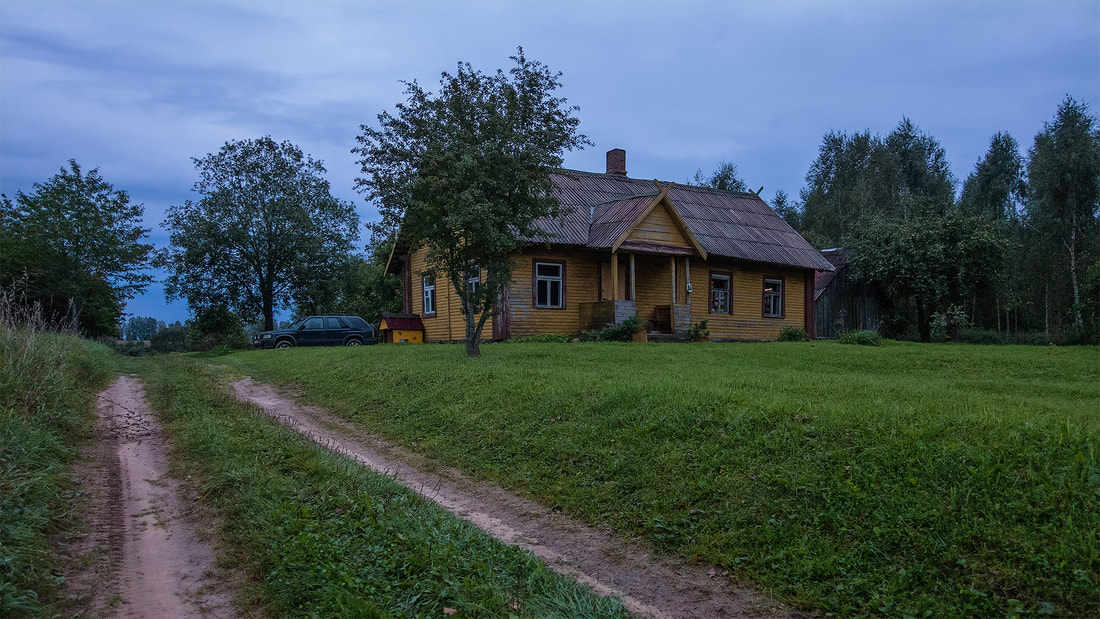|
Paulius Malinovskis CC Into Something Rich and Strange Claudia, you were always a ghost. Even as a girl, I remember Mother mostly referring to you in the past tense, Claudia and I were closer than most sisters….Claudia was so beautiful. Present tense usually involved canceled plans, side effects from medications you were on, possible new treatments, discussions about just what to do with your only son, cousin Robby, who was dead set on losing an arm or a leg on his motorcycle. Why you let him buy that thing was a constant source of miffed conversations and gossip among the aunts. Claudia, you’d had a whole life of no from your own body, stuck in that house, watching the world grow and change around you. But I never heard you say that word once, to me or anyone else. When Robby finally crashed his bike into the row of live oaks off Claymore road’s dips and bends, you didn’t even bat an eye. // Your empty home’s restoration died slow. First, the architect quit. Then another. The contractor upped his price because of “labor shortages”. A worker falling off the roof stopped construction for nearly a month. Stories in town flowered like black mold: tools being moved from first-floor construction areas to the house's attic. Doors slamming shut in empty rooms. A whole week where every day, cave swallows became trapped in the main hall, batting furiously at the ceilings and windows before dying of exhaustion. On a long enough timeline, everyone refused to go inside. I hired an EVP transcriber from Dallas named Flamora, who made a face like a cat in rain when I told her these things. She spent the first afternoon alone in there before meeting me in town for coffee where she held my hand across the table and said you’re everywhere. Everywhere. Now she lights a red protection candle before she’ll set foot in your house. // Claudia, you were right to go before the whole blight-sick family tree withered in a squall of illness and death. Suicide. Car crash. Cancer. Stroke. Suicide. Overdose. Cancer. Cancer. Dementia. Stroke. In the thick of it, I bought two funeral dresses so I wasn’t wearing the same outfit for every occasion. We didn’t even have time to figure out wills before the next one hit. Wave after wave of loss. So your house sat for years. Your irises grew wild across the yard, followed by thistles. The wisteria you planted curled around the roof and pillars, throwing shingles across the driveway, hardening through paint and wood until the whole structure pulsed with those heavy, bruise-purple blooms. Then the family attorney called, wanting to know what to do with the place: restore it or level it. I drove up to Jacksonville from Nacogdoches, expecting the monolith from my childhood, but arrived at a sagging, gray, failure of a home, obscured by brambles and shadow. Beyond the half-blocked entryway, as I walked its halls, I could hear mother and you sitting in that high-ceilinged living room with the ticking grandfather clock great-great-uncle Carol brought all the way from Houston, strapped to the back of a mule you'd say. I could see Grandpa skimming leaves from the pool before the neighbor’s niece drowned and Uncle Bruce drained it. The dead swim through every memory of that place. // Flamora walks your space at all hours with a tape recorder, listening. Apparently, you’re convinced hanging on helps preserve what would otherwise disappear. She suggested I write you letters, thanking you but asking you to leave. It’s no different from when I was a kid, scribbling grateful notes for all those sweaters you sent. Winters never get cold enough to freeze, but there I was every year, my closet stuffed with itchy wool contraptions made by you—the collars never stretched right, and their sleeves were too tight around the armpits. That was our transaction: your unwanted gifts for my thanks. I pictured you then, smiling with those fat metal needles clacking as you rocked in a chair on wide the back porch, overlooking the long-drained empty pool, knitting, knitting. // In the angry mass of all that death, there’s an opening—a place to get to before the torrent unfurls through its own gravity. I know you’re in there, pearled of your own suffering. It’s why you’re holding to that building, keeping it from caving in entirely. According to Flamora, ghosts can’t be killed. But I need you to die. The house isn’t an ode, it’s an elegy. I see it now, blanketed in thick cicada song, cornered by grackles whooping from all sides. I see you, Claudia, in that boiling paint and crumbling foundation. You’re there, nursing the ruins of our family like one of your unspooling fevers. I’m telling you no. Please. It needs to finally be over. Even if that means I'm the only one left.  Lauren Brazeal Garza is a disabled writer finishing her Ph.D. in literature at the University of Texas at Dallas. Under the name Lauren Brazeal, her published poetry collections include Gutter (YesYes Books, 2018), which chronicles her homelessness as a teenager. She has also published two chapbooks. Her individual poems and essays have appeared in Poetry Northwest, Waxwing, and Verse Daily among many others. She lives in and teaches in Dallas, Texas. Comments are closed.
|
AuthorWrite something about yourself. No need to be fancy, just an overview. Archives
April 2024
Categories |

 RSS Feed
RSS Feed
